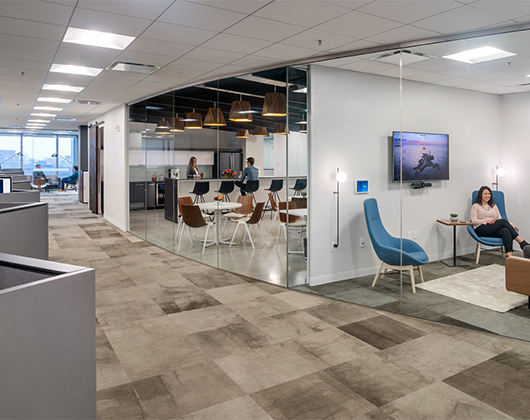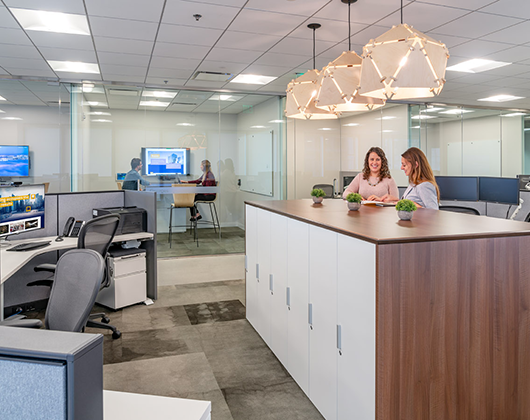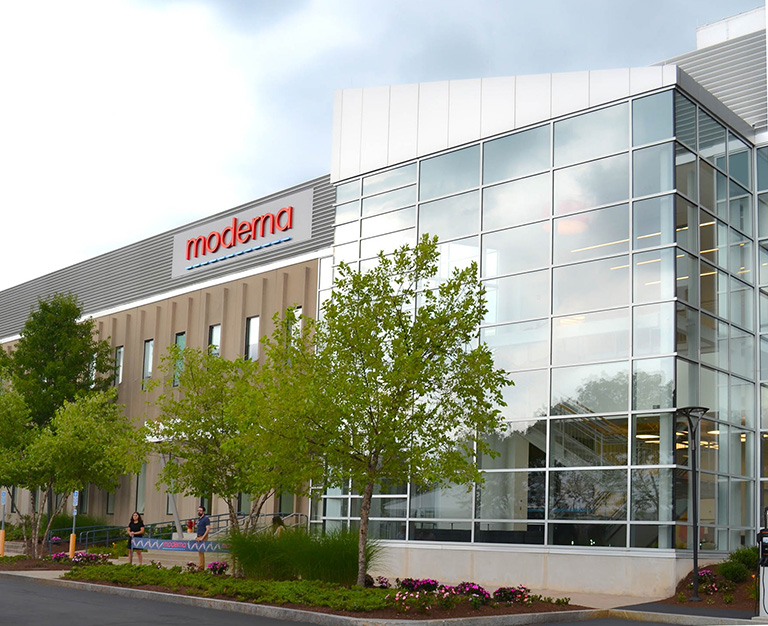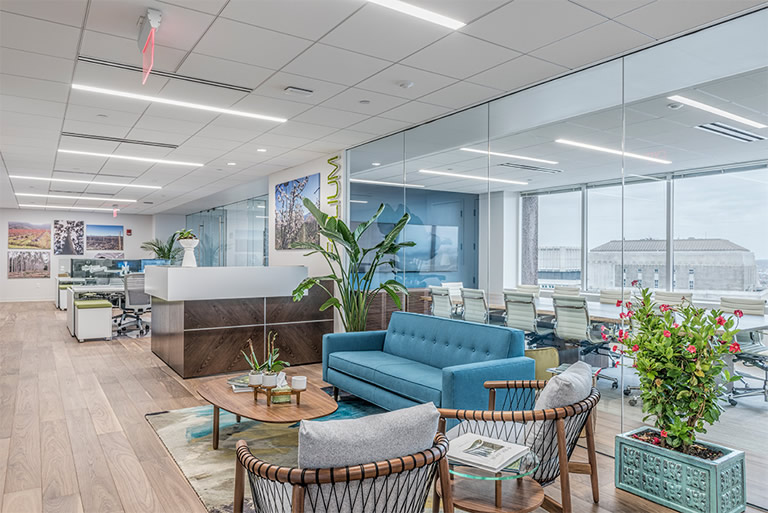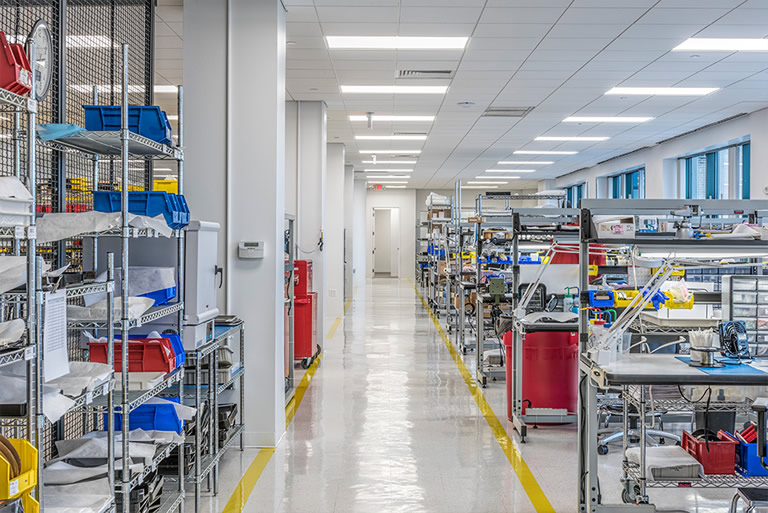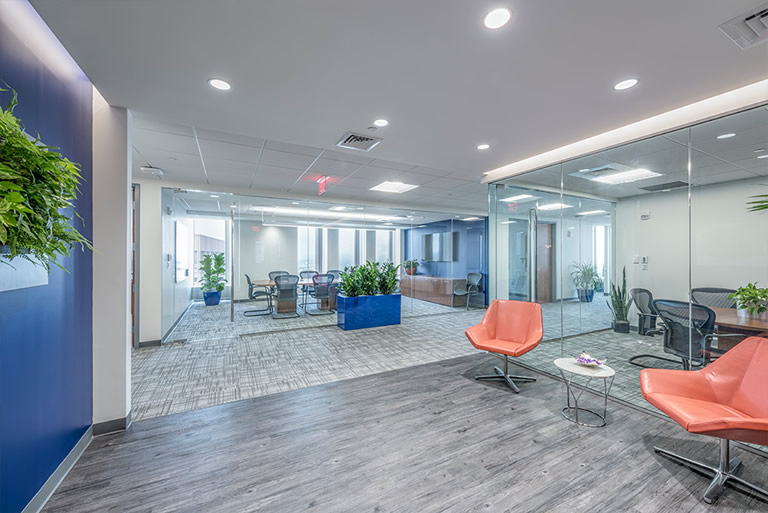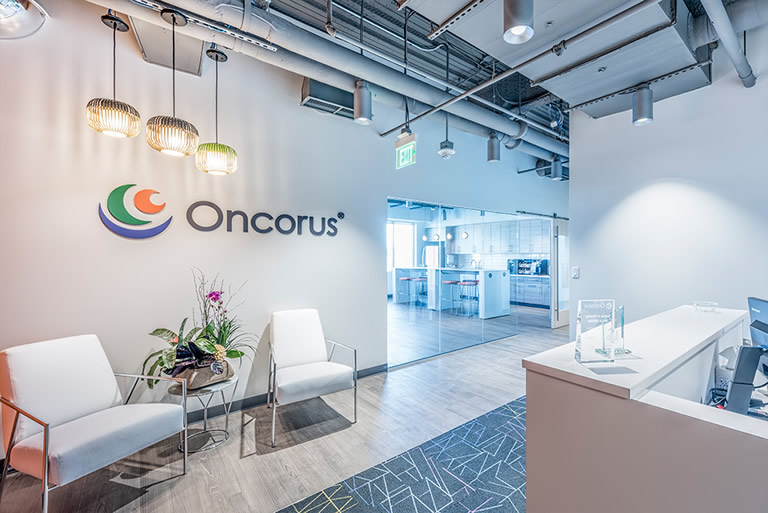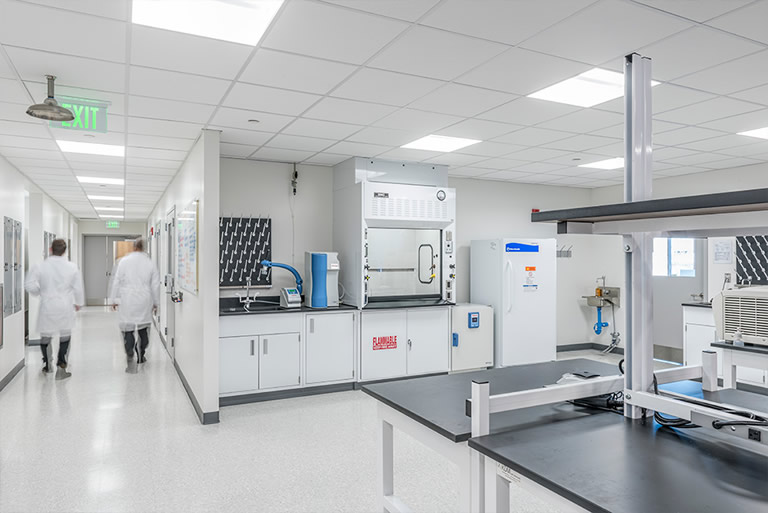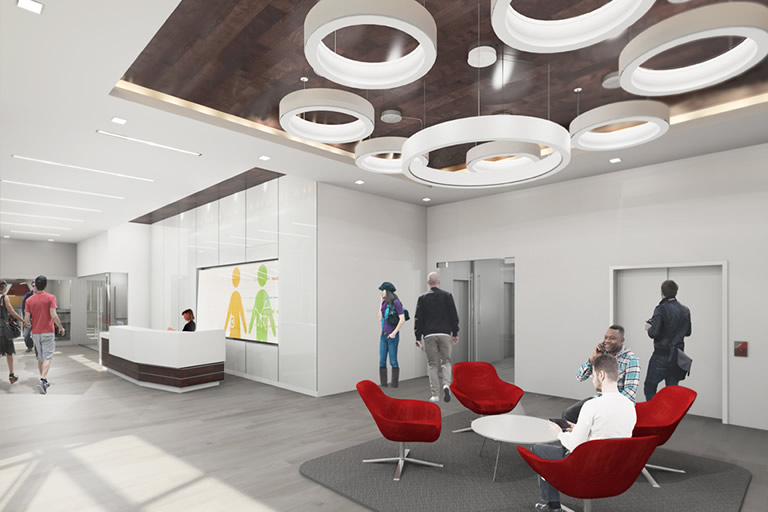DATE
January 24, 2019
Author
Donald Bárány
Staff Bio
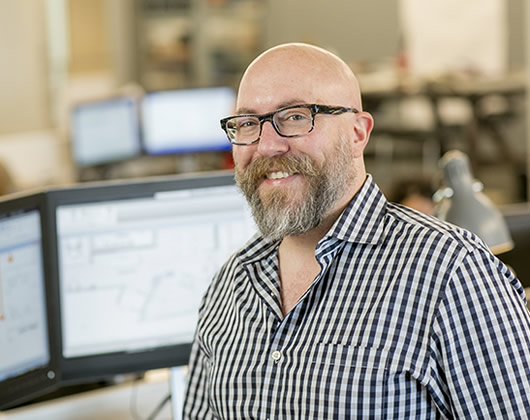
Donald Bárány
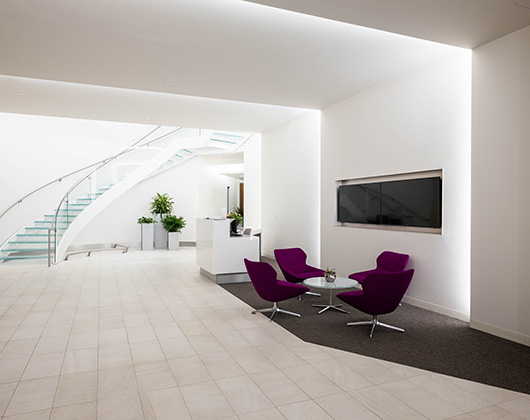
Refreshed lobby at 38 Sidney Street
Photo by Sri Thumati Photography
Article originally appeared in High-Profile Monthly on January 24, 2019.
It’s clear that an attractive building lobby can help attract potential tenants. With that goal in mind, Forest City Realty Trust, now owned by Brookfield Properties, endeavored to update all the office building lobbies at University Park at MIT, a mixed-use science and technology park adjacent to the Massachusetts Institute of Technology in Cambridge. The Clark Building at 38 Sidney Street, a five-story, 122,000sf office, research, and lab building, houses several major pharmaceutical and healthcare companies and fronts the University Park Common, the central greenspace of the campus setting. Design firm TRIA was engaged to create a refreshed lobby for 38 Sidney Street and achieve a new building positioning that would appeal to biotech tenants while maintaining a cohesive look amongst the other recently updated adjacent building lobbies.
Built in the 1980s, the existing lobby space at 38 Sidney was dark and dated and had limited natural lighting. TRIA’s design intent was to create a more timeless, museum-like setting by utilizing a simple, modern design. The design centered around the core concept of creating the illusion of natural daylight deep inside the space.
The main focal point of the lobby is the winding glass-and-steel staircase that features a large, stretched-fabric lighted fixture on the ceiling to help mimic natural daylight and reflect light off the glass. Throughout the lobby, indirect recessed lighting is cleverly integrated into the architecture to flood the space with light and cause light to sparkle, like natural sunlight, through the glass treads of the staircase.
A complex design of “stepped” folding walls and ceilings feature embedded LED lights that frame the eye through the lobby, to the vestibule of the main entrance where University Park Common is visible. Delicate recessed LED wall washers follow the folding geometry to create a cascade of light. Light-colored wood-paneled walls balance the cascading effect of the walls and ceilings while providing a neutral backdrop. A custom-made quartz reception desk offers visitors a veritable art piece in the museum-looking space, and a cozy sitting area adjacent to reception features two LCD screens recessed into the wall to display a building directory and other news.
From the lobby, dark walnut wood-framed openings create thresholds to two tenant corridor spaces. The stone-sourced light tile lobby floor shifts to complementary toned carpets in these corridors, with a dropped cloud ceiling accentuating the spaces. Natural plants and banquette seating with green cushions draw the colors of nature from University Park Common into the lobby.
TRIA collaborated closely with Siena Construction to construct the complicated architecture of folding geometry, integrated lighting, and staircase at 38 Sidney Street. Structural engineering firm Goldstein-Milano consulted on the glass-and-steel staircase as well as the infill of the two-story atrium space above the main entrance. The project team also included WB Engineers + Consultants for MEP engineering and Reflex Lighting for light fixture selection.
About the Author
Donald Bárány is a project designer at TRIA, a partner-led architecture firm with a focus on designing unique spaces for science & technology and corporate clients. For more information, please visit https://tria.design/.





